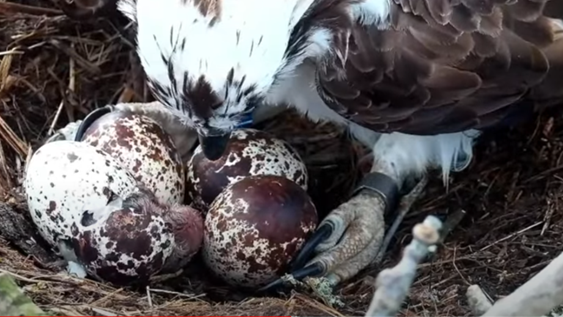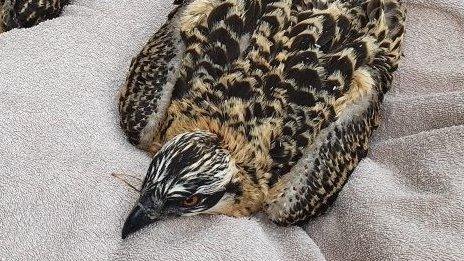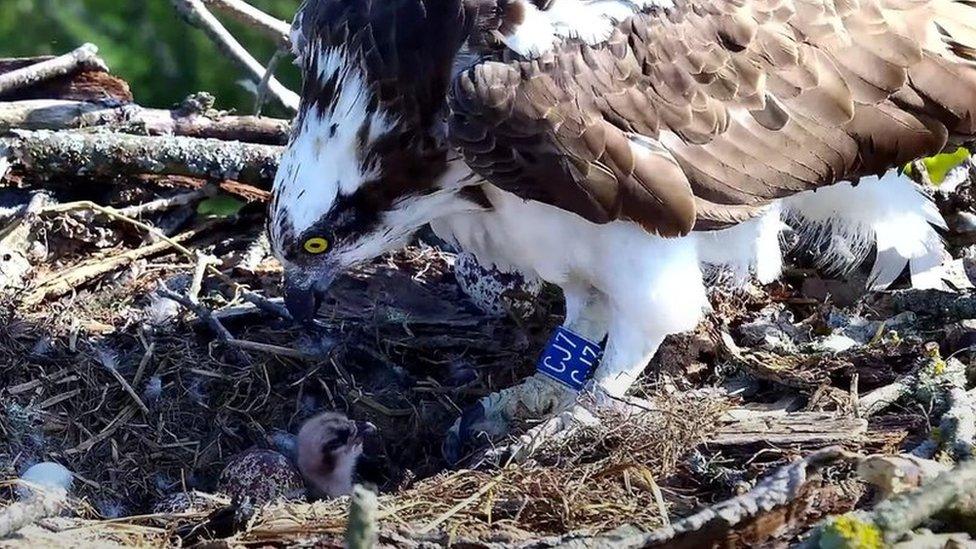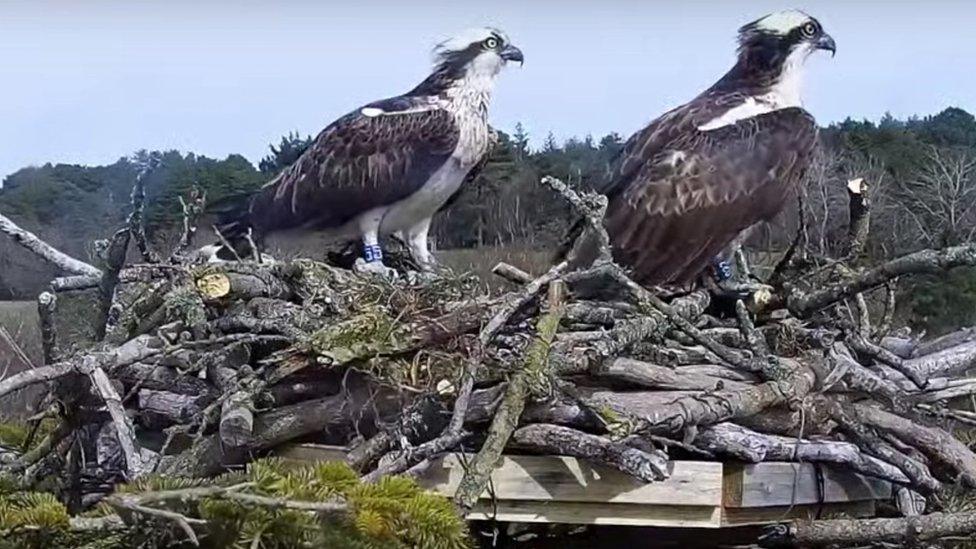Videos capture ospreys' successful breeding year

Four eggs were laid in the spring of 2024
- Published
The lives of the only pair of breeding ospreys on the south coast of England are being showcased in a series of videos released by conservationists.
A reintroduction programme began in Poole Harbour, Dorset in 2017 and this summer saw four chicks hatch - the highest annual figure so far.
Hundreds of hours of footage from a nest webcam have been trawled through to produce five social media videos.
Mya Bambrick from Birds of Poole Harbour said the videos would "relive the joys of the summer".
Webcam captures a Poole Harbour osprey chick hatching
The pair of birds - known as CJ7 and 022 - first successfully bred in 2022, with their first chick hatching in June of that year.
Their activities have been captured throughout by a webcam which has attracted viewers from around the world.
The recorded footage has been edited into five 45-minute videos which are being released online over the coming weeks.
Ms Bambrick said: "We've got all this amazing footage to be able to see all the different interactions and behaviour in the nest.
The fish-eating birds of prey historically bred across the British Isles but populations drastically declined in the Middle Ages.
The reintroduction project set up by Birds of Poole Harbour and the Roy Dennis Wildlife Foundation involves the translocation of 60 juvenile ospreys from Scottish nests into the Poole Harbour area.
Ms Bambrick said: "These birds were extinct until a few years ago and now they've bred for the first time in 180 years.
"That brave conservation work means we have these wonderful birds back in southern Britain."
The birds are now in Africa having migrated for the winter and it is hoped they will return to the secluded nesting site at Carey Secret Garden in the spring.
Get in touch
Do you have a story BBC Dorset should cover?
You can follow BBC Dorset on Facebook, external, X (Twitter), external, or Instagram, external.
Related topics
- Published5 July 2022

- Published31 May 2023

- Published25 April 2022
